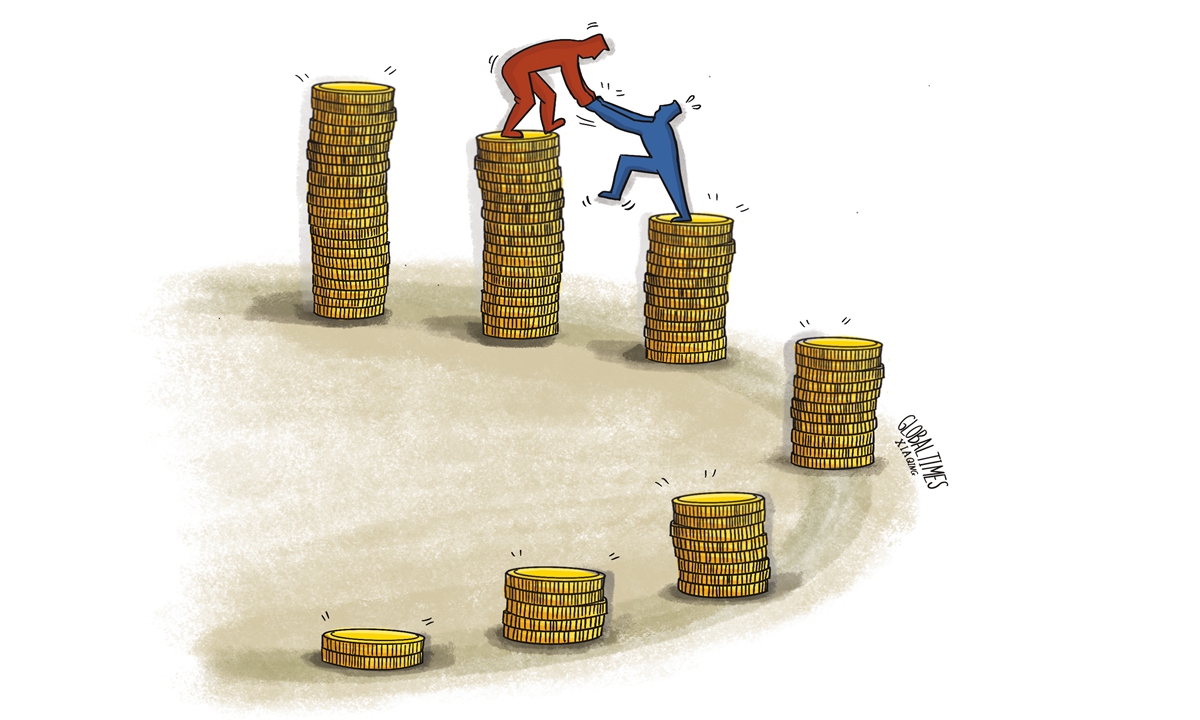COMMENTS / EXPERT ASSESSMENT
China should step up support for Samoa, other Pacific island nations

Illustration: Xia Qing/GT
China welcomes and appreciates South Pacific island country Samoa's recent accession to the Joint Statement of China-Pacific Island Countries Foreign Ministers' Meeting held on October 21. China stands ready to work together with Samoa and other island nations to strengthen dialogue, exchange and cooperation across all sectors, China's Ministry of Foreign Affairs said on Friday.
The progress of the bilateral relationship between China and Samoa, which is moving in the opposite direction of some Western countries' relentless and malicious badmouthing, is expected to further boost economic and trade ties, deliver dynamism to local economies as part of their post-COVID recovery and regional prosperity.
China and Samoa have been enjoying a mutually beneficial economic relationship. Samoa is the first country in the South Pacific region to sign a memorandum of understanding on cooperation with China under the framework of the Belt and Road Initiative (BRI). Samoa has said that the country needs partner and market like China.
Under the BRI framework, trade and investment between China and South Pacific countries have grown steadily in recent years. China's aid and investment in the region have provided strong support for local economic development.
Even under the impact of COVID-19, the trade in goods between China and the Pacific island countries in 2020 stood at $9.04 billion, up 1.3 percent year-on-year. China's investment in the region reached $884 billion by 2020. At the end of 2020, China has signed engineering contracts worth $18.48 billion in Pacific island countries, and completed transactions totaling $12.75 billion.
However, it is such a mutually beneficial economic and trade cooperation that has become the target of constant attacks and slander by some Western countries. They deliberately demonized China's investment and assistance to the local economies, and spared no effort to play up the so-called "debt trap" theory. Although their attacks have been repeatedly refuted by the leaders of these countries, their continued unscrupulous attacks have cast a pall over China's economic and trade cooperation with willing partners across the Pacific Islands.
Earlier this month, the US, Australia and Japan announced their joint funding of an undersea cable connecting three Pacific countries. It is no coincidence that the funding plan came just six months after the US' successfully obstructed a Chinese company's bid for a local project with similar route, citing bogus claims of security risks.
Whereas friendly and cooperative relations between China and Pacific island countries are based on mutual respect and equality, the US' and its allies' attempts are based on naked geopolitical calculations aimed at maintaining their hegemony over the region.
One month after the first China-Pacific Island Countries Foreign Ministers' Meeting in October, the Australian Strategic Policy Institute (ASPI), which is funded by the US government and weapon makers, clamored "this is our backyard, not China's." The report advises Australia's government to invite the US to expand presence in the region and to work more with the US to counter China in the region.
What that means is chaos and unrest. Speaking on the recent riots in Solomon Islands, the country's Prime Minister Manasseh Sogavare last month blamed foreign interference for instigating the anti-government protests over his government's decision to cut "diplomatic ties" with the island of Taiwan and establish diplomatic ties with the Chinese mainland.
Although Australia, the US, or the Taiwan authorities haven't admitted to being behind the "foreign interference" condemned by Sogavare, it is clear that the US and Australia's overall attitude is to connive with and even encourage the unrest.
The South Pacific countries know well that Australia's "beggar-thy-neighbor" approach only serves the interests of the US at the expense of local economic interests. The US and Australia only value the strategic location in the South Pacific and do not care about local economic development and livelihood. The US and Australia just want to hijack these countries in order to maintain their global hegemony, disrupt free trade, and undermine local economic development.
It has been consistently proven that under the BRI framework, economic and trade cooperation between China and South Pacific countries conforms to economic laws and has achieved great success. China will surely counter any attempt to politicize economic and trade issues and wantonly undermine the economic cooperation between China and the locals.
Meanwhile, China should further increase assistance and investment in Samoa and other countries, provide vaccine support, participate in the construction of local infrastructure projects like communication networks, and promote the rapid recovery of the local economy from the pandemic.
The author is a reporter with the Global Times. bizopinion@globaltimes.com.cn
